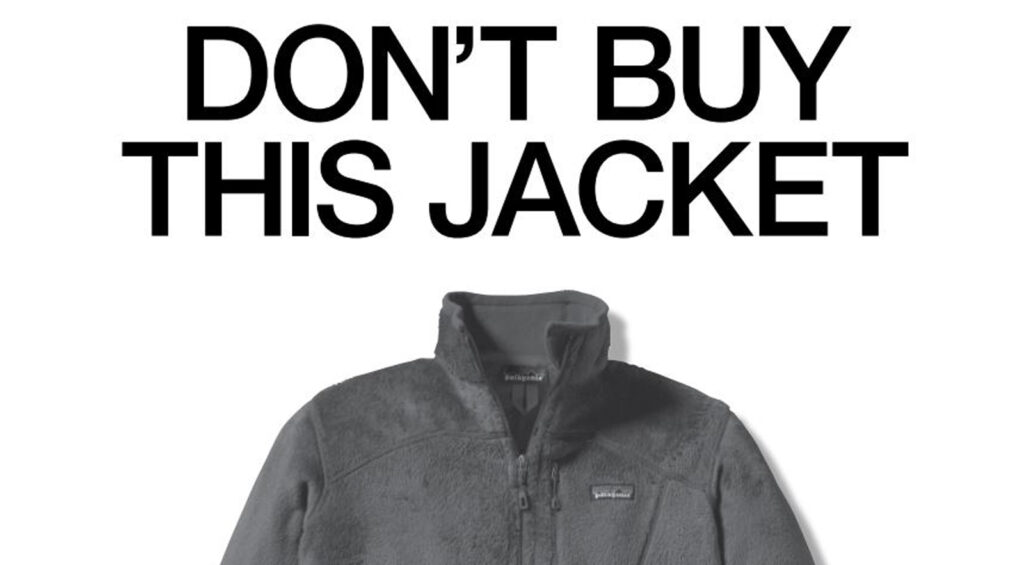These companies market their sustainability strategies by (mostly) avoiding greenwashing, providing details about their achievements and goals, and admitting their failings.

What’s green marketing?
Green marketing is how a company shows off its sustainability efforts. Good green marketing is honestly communicated and avoids the greenwashing trap.
How to identify good green marketing:
- Realistic claims – if something sounds too good to be true, maybe it is? All claims should be backed up by…
- Facts and figures – how is the company reducing its carbon footprint, by how much, from what baseline? Details, details, details.
- Accessibility – you shouldn’t have to hunt through a long, complicated report to learn about a company’s sustainability strategy. The highlights and key points should be clear on its website, with links for more detailed information.
- Failings – no company is perfect, so every one should be able to identify areas for improvement.
- Targets – green companies should have clear, specific targets and, importantly, a route map of how they intend to achieve these goals.
So who’s doing this well?
Let’s be clear. These brands aren’t necessarily the most ‘eco-friendly’ or actively saving the planet through their businesses – but they are making steps to reduce their impact and communicating their activities (for the most part) honestly.
1. Patagonia
Of course we have to start with Patagonia. The outdoor brand has long had an aim to be as sustainable as it can be – for example, by encouraging customers to return old Patagonia gear for resale and buy replacements through its second-hand Worn Wear programme. 94% of its latest line is made from recycled materials; it uses organic cotton; and it offers more Fair Trade Certified™ sewn styles than any other clothing brand.
But the reason we like Patagonia’s marketing is its honesty – the first words on its ‘Our Footprint‘ webpage are:
Everything we make has an impact on the planet.
Patagonia
This is the key to green marketing: truth. Very few brands, if any, have zero impact. Patagonia still has a way to go on its journey to be an environmentally and socially sustainable brand. For example, over half the people working in its apparel assembly factories aren’t paid a living wage – something Patagonia acknowledges with plans for improvement.
2. IKEA
IKEA aims to be climate positive by 2030, which means reducing more emissions than the company generates. The furniture retailer admits it has some distance to go to achieve this, but explains how it plans to get there – for example, designing products to be reused and refurbished; introducing menus that are 50% plant-based by 2025; and moving to 100% renewables by 2030 (and enabling supply partners to do the same).
Other plans include phasing out all plastic packaging by 2028 and ensuring that at least a third of their wood range is made from recycled wood by 2030. IKEA also needs to tackle its supply chain issues and treatment of employees.
One of the biggest issues with IKEA is consumption – if you’ve ever been in an IKEA store, you’ll know how difficult it is to get from entrance to checkout without collecting a heap of things you didn’t plan on buying. To address this (at least in part), the company has committed to a circular economy by 2030 – selling spare parts to repair or upgrade items, exploring a leasing model and refurbishment services, and offering recycling pick-ups in places without such infrastructure.
IKEA is definitely not a perfect company, but they are aiming in the right direction and are mostly clear about their shortcomings.
3. Unilever
Unilever owns more than 400 brands sold globally including Dove, Comfort, Ben & Jerry’s and Domestos. The company has put an emphasis on sustainability with its Unilever Compass Strategy, which covers “planet and society“. It has goals of zero emissions from its operations by 2030, net zero emissions across the value chain by 2039, increasing plant-based food sales and halving food waste between factories and shelves by 2025. The company has even been accused of focusing on sustainability over financial performance by one of its major investors.
On its website, there’s a page dedicated to the company’s position on everything from animal testing to microplastics, including controversial issues such as the Kericho Tea Estates in Kenya, where allegations of sexual harassment were made in 2013 (Unilever says it monitors progress on the recommendations made by an independent review on a monthly basis and focuses on improving education, awareness and “grievance and reporting procedures”).
Unilever has, however, fallen foul of tighter greenwashing regulations: the UK’s Advertising Standards Authority found the claim that Persil detergent is “kinder to our planet” at the end of an advert wasn’t clearly substantiated. Stricter greenwashing rules mean even the most well-meaning brands need to do better.

